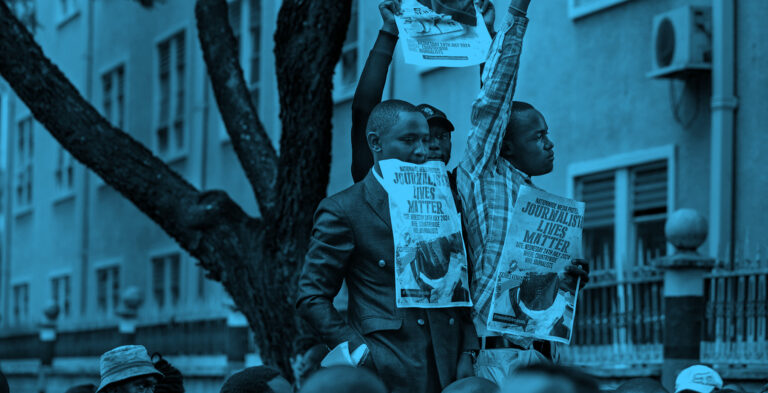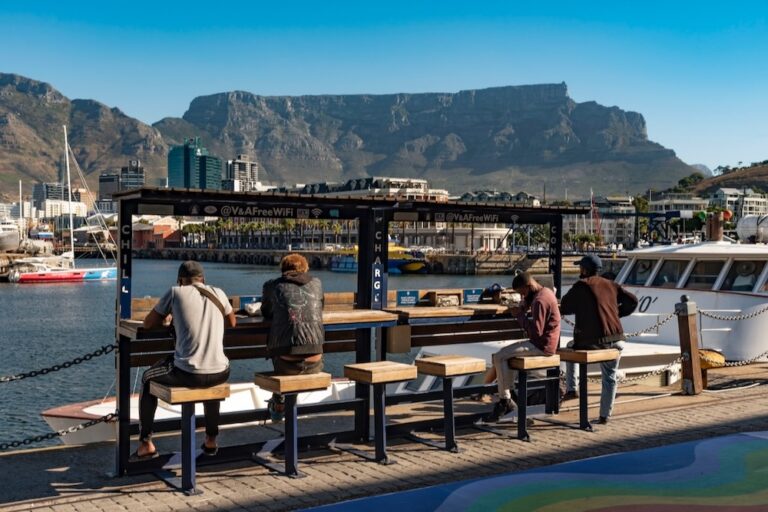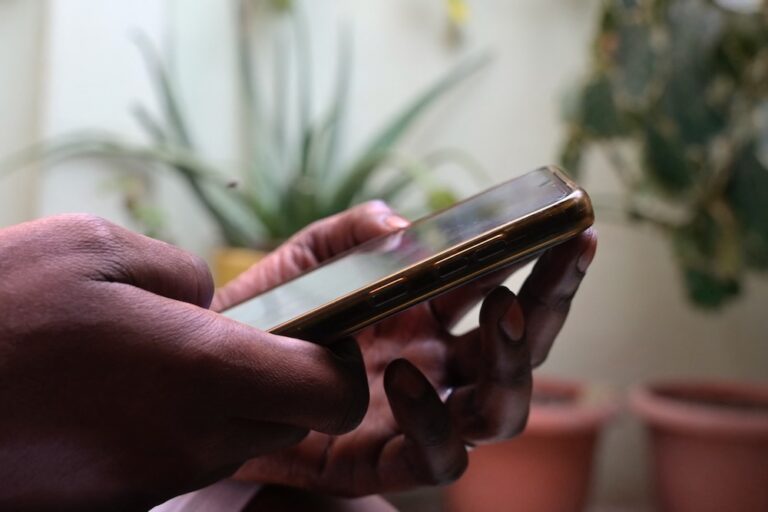(CPJ/IFEX) – The following is a 17 November 2006 CPJ press release: CPJ INTRODUCES 2006 PRESS FREEDOM AWARD WINNERS IN WASHINGTON Washington, November 17, 2006 – The Committee to Protect Journalists introduced its 2006 International Press Freedom Award winners at a press conference at the National Press Club today. The journalists, from Colombia, Yemen, and […]
(CPJ/IFEX) – The following is a 17 November 2006 CPJ press release:
CPJ INTRODUCES 2006 PRESS FREEDOM AWARD WINNERS IN WASHINGTON
Washington, November 17, 2006 – The Committee to Protect Journalists introduced its 2006 International Press Freedom Award winners at a press conference at the National Press Club today. The journalists, from Colombia, Yemen, and the Gambia, will be honored along with a slain colleague from Iraq at an awards ceremony on Tuesday in New York. The event also marks CPJ’s 25th anniversary.
Jesús Abad Colorado of Colombia, Jamal Amer of Yemen, and Madi Ceesay of the Gambia have risked their lives to report the news, withstanding attacks, harassment, and imprisonment. CPJ will posthumously honor Atwar Bahjat, correspondent for Al-Arabiya satellite television and former reporter for Al-Jazeera, who was gunned down while covering a bombing near Samarra in February.
Ceesay, Amer, and Colorado spoke today about the difficulties they face in their home countries. The media in the tiny West African country of the Gambia have endured a spate of arson attacks, detentions, and intimidation, Ceesay said. “We have gone through what I would call hell,” he added.
Colorado, the first photographer to receive CPJ’s award, said “photography can be a way of speaking in a country where the word can be dangerous.” Even so, Colorado has been abducted twice by guerrillas.
“These reporters are an inspiration to all who practice journalism,” CPJ Executive Director Joel Simon said. “In an era when foreign correspondents face terrible risks, local journalists like our award winners face an even higher level of danger. They are driven by a powerful and innate desire to know, to understand, and to tell. In that sense, they are serving not only their countries but all of us who care about the world.”
Jesús Abad Colorado is a freelance photographer who has witnessed some of the most violent clashes in Colombia’s civil war, capturing powerful images of human rights abuses perpetrated by all sides in the conflict. As a provincial journalist, Colorado knows the adversity faced by colleagues in strife-ridden areas outside the capital, where journalists routinely face threats of reprisal from guerrillas, paramilitaries, and local authorities. Colorado, whose work is widely published in Colombia, has displayed great bravery and determination in reporting from the front line. He was kidnapped twice by leftist guerrillas; in one case, in October 2000, guerrillas of the National Liberation Army (ELN) abducted Colorado at a roadblock and held him for two days.
Colorado won acclaim for his work in the aftermath of a massacre in the town of San José de Apartadó in February 2005. His news account and photographs, published in the national daily El Tiempo, pointed to military involvement in the massacre and a pattern of close military-paramilitary cooperation in the region. Colorado says his photographs tell a story of despair and serve as witness to people’s resilience.
Jamal Amer is the courageous editor of one of Yemen’s most independent weeklies, Al-Wasat. His reporting on corruption, religious militancy, and sensitive political issues has triggered a number of frightening threats and attacks. In August 2005, he was seized by four men believed to be security agents and held for six hours. The assailants beat him, accused him of being paid by the U.S. and Kuwaiti governments, and warned him about defaming “officials.” The men drove a blindfolded Amer to the top of a mountain, where they threatened to shoot him. His abduction shocked Yemeni journalists, who took it as an explicit warning against the sort of enterprising journalism that had been a mark of Al-Wasat. Just days before Amer’s kidnapping, the paper ran a daring story alleging that several government officials were exploiting state scholarships to send their own children to study abroad. This year, pro-government newspapers have accused Amer of being an agent of the West, and his family has been subjected to government surveillance.
Madi Ceesay is a veteran independent journalist from the Gambia who has suffered attacks and imprisonment for his work. He is also a leading press freedom activist, serving as president of the Gambia Press Union, which has headed efforts to fight impunity in attacks on the press, including the unsolved December 2004 murder of prominent newspaper editor Deyda Hydara.
In 2006, Ceesay took over as general manager of The Independent, a leading private paper that has suffered frequent official harassment and two unsolved arson attacks. In March, security forces sealed off The Independent’s offices and detained staff after the paper published critical articles about a purported coup attempt. Ceesay and Editor Musa Saidykhan were held for three weeks without charge by the National Intelligence Agency. Before joining The Independent, Ceesay worked for 10 years for the respected independent weekly Gambia News and Report, first as a reporter and then as its deputy editor.
Atwar Bahjat, correspondent for Al-Arabiya and one of the best known war reporters in the Arab world, was murdered in Iraq in February along with her freelance cameraman, Khaled Mahmoud al-Falahi, and engineer, Adnan Khairallah. Her bullet-riddled body was found near Samarra a day after the station lost contact with the crew. At the time of her death, Bahjat was on the outskirts of Samarra covering the bombing of the Shiite shrine Askariya, known as the Golden Mosque. A witness said her murderers drove up suddenly and sought out the television “presenter” to be killed.
Bahjat, a 30-year-old Iraqi, had just joined Al-Arabiya after working as a correspondent for Al-Jazeera since 2003. She had previously worked for Iraqi TV under Saddam Hussein. She was known as a dogged street reporter who knew well the hardships endured by Iraqi reporters. In the course of her work, Bahjat received several death threats and survived a roadside bomb that destroyed her car, none of which deterred her from reporting. “She always liked to be a reporter in the field,” recalled Al-Jazeera news anchor M’hamed Krichene who worked with her in Baghdad.
The awards will be presented at the Waldorf-Astoria in New York on Tuesday, November 21. Robert A. Iger, president and chief executive officer of the Walt Disney Company, and John S. Carroll, Knight visiting lecturer at the Shorenstein Center at Harvard University, are co-chairmen of the black-tie event. CNN Chief International Correspondent and CPJ board member Christiane Amanpour will be the host.


